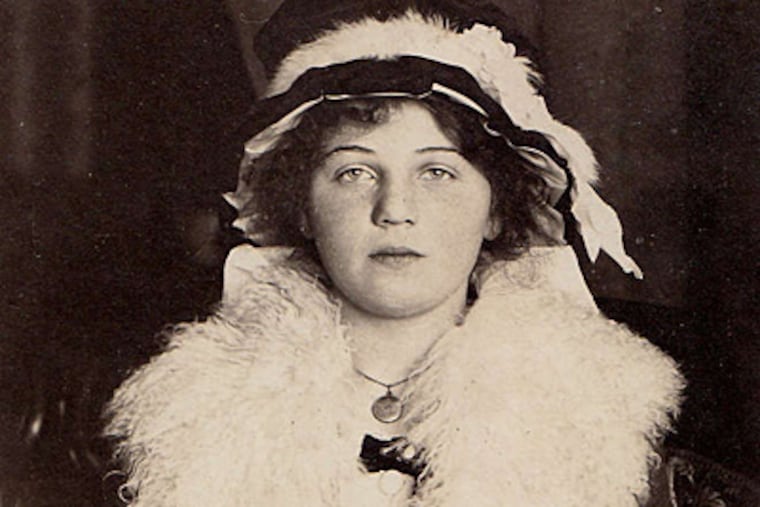A lingering nightmare from the Titanic
STRONG south-westerly breeze, beam swell and lumpy sea . . . The "Bremen" passed near us, she reported having seen, one hour and a half before, bodies etc. This means about twenty five miles to the east. - From the diary of Frederick A. Hamilton, cable engineer of the trans-Atlantic cable ship "Mackay Bennett," April 20, 1912.

[Listen to audio of Daily News City Editor Gar Joseph interview his grandmother, Leoni Hermann, about the Titanic disaster.]
STRONG south-westerly breeze, beam swell and lumpy sea . . . The "Bremen" passed near us, she reported having seen, one hour and a half before, bodies etc. This means about twenty five miles to the east. - From the diary of Frederick A. Hamilton, cable engineer of the trans-Atlantic cable ship "Mackay Bennett," April 20, 1912.
My grandmother, Leoni Hermann, came to America at age 11. She was from Dresden, Germany. She sailed for New York with her grandmother aboard the S.S. Bremen in April 1912.
They did not intend to stay. They came to help Aunt Lena, who had two toddlers. Lena was needed to work in her husband's barber-supply business in Jersey City. The idea was for Leoni and her grandmother to stay a year or so, taking care of the kids, until the business was strong enough that Lena could return to being a housewife.
But Leoni couldn't go back, not after what she saw that bleak, gray morning of April 20 from the Bremen's top deck.
"The first one was a lady with a baby," she told me on a tape recording I made in 1987. "I was dumbfounded. I didn't think I saw right. . . . And then we saw a lot of stuff on the water, you know. . . . As we went further there was another body. And they picked one up."
Leoni remembers the passengers weeping, the crew trying to calm them. Soon the captain met with groups of passengers and broke the news: R.M.S. Titanic had sunk five days before - 100 years ago Sunday - with enormous loss of life.
A Chicago Tribune story from April 25, 1912, identified the Bremen's captain as Capt. Wilhelm. It quotes his description of the Bremen plowing through the fields of bodies and debris:
"They were everywhere," the captain declared. "There were men, women, and children. All had life preservers on. I counted 125, then grew sick of the sight. There may have been as many as 150 or 200 bodies."
Leoni saw other bodies, but it was the first, that mother, in a white life jacket, clutching her frozen baby, that haunted her.
"I'll never forget it," she told me. "The picture is right in front of my eyes whenever I think about [the Titanic]."
Coming to a new country, learning a new language, being apart from her parents was hard. She was ostracized at school because of her accent. Her only friend was a Native-American girl, ostracized at school for her ethnicity. The outcasts stuck together.
After school, Leoni cared for the toddlers, helped make them supper, squeezed in time for homework and then went to bed. That's when the homesickness came.
"Many times when I'd go to sleep, I thought of home. I wanted to go back home, but when I thought of that [woman and her baby], I thought, 'No, I'm not going to take that chance. No,' " she told me.
And there was always this: "If we'd been there a little earlier, maybe we could've saved them."
Leoni's grandmother returned to Germany and offered to take her back home. But she was too afraid. She kept seeing those frozen bodies.
Leoni stayed and found work as a nanny in other homes. She became an American citizen, met and married my grandfather, sent two sons off to fight the Nazis in World War II. Her parents remained in Dresden.
In February 1945, Allied planes dropped 3,900 tons of incendiary and high-explosive bombs on Dresden, creating a huge firestorm that killed at least 25,000 people and injured tens of thousands more. Leoni's father died a few weeks later.
All those years that Leoni wished she could've saved that woman and her baby from the Titanic, she may never have realized that, in a way, they saved her. That image kept her from returning to Germany at the dawn of a time of evil and death. Her life would've been on a very different path. One that could've ended in a firestorm.